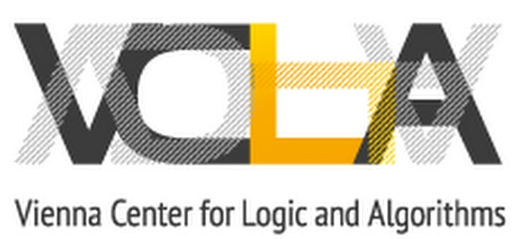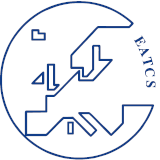Sponsors and partners:


|
|
|
|
Please feel free to distribute the CfP as plain text or via this web page.
Call for Papers
The MFCS conference series on Mathematical Foundations of Computer
Science is a high-quality venue for original research in all branches
the longest history in the field-the first conference in the series
was held already in 1972. Traditionally, the conference moved between
the Czech Republic, Slovakia, and Poland, while since 2013, the
conference has traveled around Europe.
In 2022, at its 50th anniversary, MFCS will be held in Vienna, Austria.
MFCS 2022 will be co-located with MATCH-UP 2022,
the 6th Workshop on Matching Under Preferences.
Barring substantial and unforeseen developments, MFCS will be
organized as a physical event, and at least one author of each
accepted paper must register at the conference. Authors who cannot
physically attend the conference will be given the option to present
their results via a live video talk.
Invited Speakers
- Fedor V. Fomin (University of Bergen)
- Monika Henzinger (University of Vienna)
- Thomas Henzinger (IST Austria)
- Marta Kwiatkowska (University of Oxford)
- Vijay Vazirani (University of California)
Important Dates
- Abstract Deadline: Friday, April 22, 2022 (Anywhere on Earth)
- Submission Deadline: Wednesday, April 27, 2022 (Anywhere on Earth)
- Notification: Tuesday, June 21, 2022
- Conference: August 22-26, 2022
Submission Guidelines
Papers should be submitted electronically through EasyChair.
Submissions should be formatted using the LIPIcs style with length not
exceeding 12 pages (excluding references and an optional appendix).
References and an optional appendix can go beyond the 12 pages; the
appendix will be consulted at the discretion of the program committee.
It is mandatory to use the LIPIcs style for submissions.
No prior publication or simultaneous submission to other conferences
or journals are allowed (except preprint repositories such as arXiv or
workshops without formal published proceedings).
Publication
As in previous years, MFCS 2022 proceedings will be published in
LIPIcs (Leibniz International Proceedings in Informatics) under an
open access license.
List of Topics
We encourage submission of original research papers in all areas of
theoretical computer science, including (but not limited to) the following:
- algebraic and co-algebraic methods in computer science
- algorithms and data structures
- automata and formal languages
- bioinformatics
- combinatorics on words, trees, and other structures
- computational complexity (structural and model-related)
- computational geometry
- computer-aided verification
- computer assisted reasoning
- concurrency theory
- cryptography and security
- cyber physical systems, databases and knowledge-based systems
- formal specifications and program development
- foundations of computing
- logics in computer science
- mobile computing
- models of computation
- networks
- parallel and distributed computing
- quantum computing
- semantics and verification of programs
- theoretical issues in artificial intelligence and machine learning
- types in computer science
Program Committee
- Christoph Berkholz (Humboldt-Universität zu Berlin)
- René van Bevern (Huawei Technologies and Novosibirsk State University)
- Olaf Beyersdorff (Friedrich Schiller University Jena)
- Filippo Bonchi (Computer Science Department, University of Pisa)
- Andrei Bulatov (Simon Fraser University)
- Ugo Dal Lago (Università di Bologna and INRIA Sophia Antipolis)
- Laure Daviaud (City, University of London)
- Anuj Dawar (University of Cambridge)
- Stefan Felsner (TU Berlin)
- Celina Figueiredo (UFRJ)
- Nathanaël Fijalkow (CNRS, LaBRI, University of Bordeaux)
- Marie Fortin (University of Liverpool)
- Robert Ganian (TU Wien, co-chair)
- Petr Golovach (Department of Informatics, Bergen University)
- Gregory Gutin (Royal Holloway, University of London)
- Sara Kalvala (The University of Warwick)
- Sandra Kiefer (RWTH Aachen University)
- Eun Jung Kim (CNRS - Paris Dauphine)
- Dušan Knop (Czech Technical University in Prague)
- Martin Koutecky (Charles University in Prague)
- Martin Lange (University of Kassel)
- Massimo Lauria (Sapienza University of Rome)
- Karoliina Lehtinen (University of Liverpool)
- Meena Mahajan (The Institute of Mathematical Sciences, HBNI, Chennai)
- Konstantinos Mamouras (Rice University)
- Barnaby Martin (Durham University)
- George Mertzios (Durham University)
- Stefan Milius (FAU Erlangen)
- Neeldhara Misra (Indian Institute of Technology, Gandhinagar)
- Fabrizio Montecchiani (University of Perugia)
- Sebastian Ordyniak (The University of Sheffield)
- Sang-il Oum (Institute for Basic Science (IBS) and KAIST)
- Daniel Paulusma (Durham University)
- Daniela Petrisan (Université de Paris, IRIF)
- Michał Pilipczuk (University of Warsaw)
- Damien Pous (CNRS - ENS Lyon)
- Simon Puglisi (University of Helsinki)
- Paweł Rzążewski (Warsaw University of Technology)
- Alexandra Silva (Cornell University, co-chair)
- Friedrich Slivovsky (TU Wien)
- Ana Sokolova (University of Salzburg)
- Stefan Szeider (TU Wien, general chair)
Organizing Committee
- Jan Dreier (TU Wien)
- Robert Ganian (TU Wien)
- Stefan Szeider (TU Wien)
|

